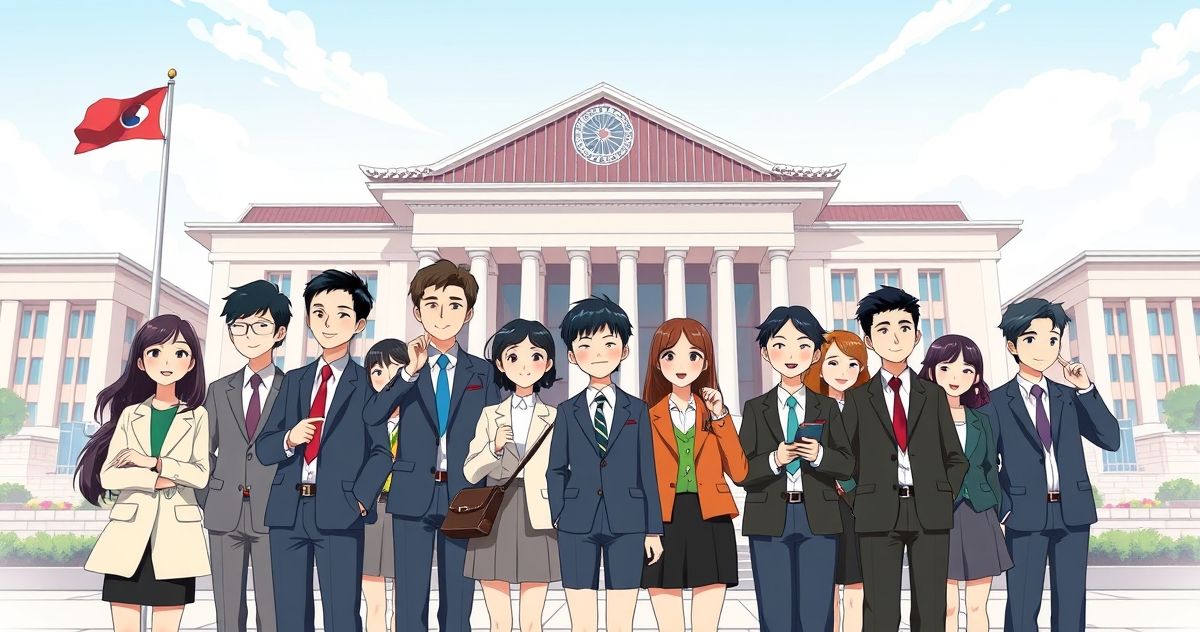
South Korea's National Assembly has unanimously passed a sweeping amendment to the nation's election law, a move widely hailed as a landmark reform aimed at bolstering youth political participation and strengthening its democratic foundations. The unanimous vote, coupled with fervent public debate, signals an unprecedented commitment by lawmakers to address the long-standing marginalization of younger voters and to reinvigorate the political landscape for future generations.

Lowering the Voting Age and Streamlining Registration
The amended law introduces several notable measures designed to encourage increased engagement among citizens aged 18 to 29. Most prominently, the reform lowers the legal voting age from 19 to 18, granting millions of young South Koreans the right to vote in their first national elections. This change is particularly significant in the context of a nation whose political evolution has been closely watched both domestically and internationally. By formally recognizing the political agency of younger citizens, the government is not only rectifying a historic oversight but is also aligning its policies with contemporary global democratic norms.
In addition to lowering the voting age, the amendment includes provisions to simplify the voter registration process for young people. The streamlined system aims to remove administrative hurdles that previously discouraged new voters from participating. Supporters of this reform argue that a more accessible electoral process is essential for nurturing a robust democratic culture, one that is reflective of the diverse experiences and perspectives of South Korea's rapidly changing demographic landscape.
A Critical Step for Inclusive Democracy
Political analysts emphasize that the law represents a critical step forward in answering the call for a more inclusive political system. During a press conference following the vote, a spokesperson for the National Assembly stated, 'This amendment embodies the spirit of democracy, ensuring that every citizen, regardless of age, has the opportunity to shape the future of our country. It is our duty to create a political environment that encourages active participation and values the voices of our youth.'
The amendment also introduces educational initiatives aimed at increasing civic engagement among young citizens. Schools and universities will receive support to implement comprehensive civic education programs, which include workshops, debates, and practical training sessions on the mechanics of governance and the responsibilities of citizenship. These programs are designed to foster a sense of responsibility and interest in politics, turning passive interest into active participation. As a result, many experts believe that the long-term impact of the reforms could be a generation of more politically informed and engaged citizens who take an active role in shaping policy, both locally and nationally.
Addressing Concerns and Building Support
Critics, however, have expressed concerns regarding the rapid implementation of such sweeping changes. Some worry that without proper educational and administrative frameworks in place, the potential benefits might not be fully realized. Nonetheless, the unanimous vote in the National Assembly suggests a strong consensus among policymakers that the urgency of empowering youth outweighs these transitional challenges. Government officials have pledged to work closely with educators, local governments, and civil society groups to ensure that the necessary support structures are established as quickly as possible.
The reform is also seen as a response to wider societal concerns about political disengagement among younger generations. In recent years, voter turnout among young South Koreans has been noticeably lower compared to older demographics—a trend observed globally and attributed to a combination of economic uncertainties, shifting cultural values, and a perceived disconnect between young voters and traditional political institutions. By directly addressing these issues, the new law could redefine the relationship between the state and its youngest citizens, creating pathways for ongoing dialogue and participation in the democratic process.
International Recognition and Future Implications
International observers have taken note of the reform as a positive development for South Korea's democracy. Analysts from various global think tanks have praised the unanimous legislative backing, citing it as evidence of a maturing political system that is willing to adapt to the changing needs of its populace. Such reforms have the potential to serve as a model for other nations grappling with similar challenges of youth disengagement in political processes.
In conclusion, the unanimous passage of the election law amendment by South Korea's National Assembly marks a pivotal moment in the nation's democratic journey. By lowering the voting age, streamlining voter registration, and incorporating civic education initiatives, the government is laying the groundwork for a more inclusive and dynamic political future. For international audiences, this move offers a glimpse into how established democracies can reinvent themselves by integrating the aspirations of younger generations into the fabric of national governance. If implemented successfully, the reform could not only reinvigorate South Korea's electoral landscape but also provide lessons on fostering civic engagement and political renewal worldwide.
Original article in Korean: https://trendy.storydot.kr/politics/youth-political-participation-election-law-reform
Original Korean Article: https://trendy.storydot.kr/politics/youth-political-participation-election-law-reform


0 Comments